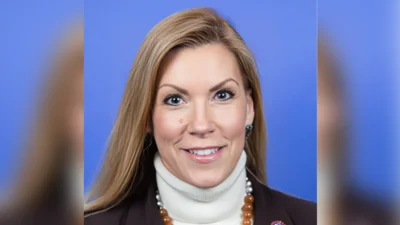Dallas Mayor Eric Johnson (Left) | Facebook
Dallas Mayor Eric Johnson (Left) | Facebook
The Dallas media seems to have changed since the unrest and protests in America this year. That’s the view of Matt Hill, a Dallas resident with a law practice in Rockwall.
Hill said sharp criticism of Mayor Eric Johnson seems to have been sparked by the riots and protests following the death of George Floyd in the custody of Minneapolis police officers on May 25.
The Dallas Morning News and D Magazine have published articles blasting the mayor, saying he is ineffective and has little true power.

Matt Hill
| Provided
“Johnson entered yesterday’s meeting with one thing to get done: win approval of his proposal for across-the-board salary cuts for city staff making $60,000 a year or more,” a Sept. 3 D Magazine article stated. “The salary cuts, which the mayor has branded as his attempt to ‘defund the bureaucracy’ at City Hall, were rejected by a near unanimous council vote of 13-1.”
Hill said he strongly supports the mayor’s idea of saving money for the police overtime budget by reducing salaries of higher-paid city workers.
“I have not always supported him, but I certainly am a fan of this,” he told Dallas City Wire. “If there’s place to cut city dollars down, it’s in bureaucratic bloat, not on the front lines of the police department.”
Hill, 43, a Dallas area native, said it appears Mayor Johnson is at a low ebb right now.
“It doesn’t look good in terms of him of getting his budget approved,” he said. “I don’t think he has the political support in the council.”
Hill said it seems like the civil unrest this summer caused the Dallas media to turn on the police department.
“I think the sense of the populace is different than the corporate media in Dallas,” he said. “The Morning News and D Magazine seen to have taken the party line, we want to oppose anything that Eric Johnson does. They support the inflated salaries of city workers at the expense of the police.”
Hill said he has noticed a trend in news stories this summer.
“There’s been a significant anti-police bias in the corporate media here and I don’t think that’s consistent with how most citizens feel,” he said.
Hill said it feels like things changed as the protests were held across the country, including in Dallas in late May and early June.
“The Morning News was broadly in favor of police reform, as I am. But there wasn’t an anti-police perspective,” he said. “A lot of people have changed their point of view on police. The police don’t always act appropriately. There are a significant amount of abuses. That doesn’t mean you scale back on protecting citizens from crime. That’s a perspective that the media is missing.”
Still, the media has focused on police officers and accusations of misbehavior and illegal actions. The deluge of criticism may have been a factor in the resignation of Dallas Police Chief U. Reneé Hall. She was sharply assailed for how police responded to the protests, with several council members also targeting her for the police performance.
“I actually don’t know why she resigned,” Hill said.
Hall said she had other job opportunities, and once she leaves the Dallas Police Department at the end of the year, her next move may explain a lot, he said.
Despite his displeasure with the “corporate media,” Hill said he doesn’t perceive a racial bias in any direction.
“No, I can’t think of an instance where they were racist,” he said.
According to a Gallup study, most Black Americans (81%) want police to spend the same amount of or more time in their area.
Hill graduated from the University of Chicago Law School in 2001 and earned a master’s in business administration from the University of Texas McCombs School of Business.






 Alerts Sign-up
Alerts Sign-up